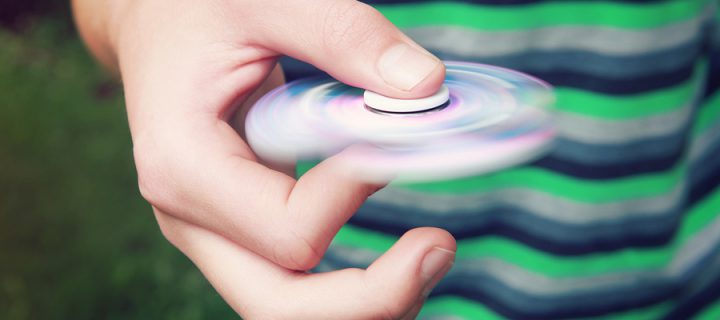If your child swallows the battery, seek immediate medical attention to have it removed.
Last year, fidget spinners were all the rage and they continue to be a popular toy for kids today. The small devices allow you to hold the toy in the middle and spin it in circles, in your hand.
They’ve been promoted as a tool for kids and they might work. The claims aren’t entirely scientifically supported, but you can see the attraction.
A child who finds it hard to sit still in class can twirl their fidget spinner all they like and work their wiggles out. And it’s all done quietly, while staying seated at their desk.
But there’s a danger. Those fidget spinners that light up when spun, while fun, can be life-threatening. The lights housed in them are powered by button batteries in the center of the disk.
Related: Oklahoma Toddler Dies After Swallowing THIS Kind of Battery
At least two reports tell the tale of young children swallowing the batteries and suffering severe esophageal burns.
The trouble is, button batteries are made of lithium and cause extreme damage in a short time. When they’re ingested and come into contact with bodily fluids, the batteries wreak havoc. They need to be removed immediately, as life threatening complications can develop in just two hours.
Surgery
Both children in the reports required emergency endoscopy to remove the batteries. One even stayed in hospital for 3 weeks, due to the possibility of further life-threatening complications.
Aren’t sure? Experts are saying that it should be assumed that any fidget spinner disk that’s been ingested contains a button battery, until proven otherwise.
Button batteries are common and often power household devices such as cameras, watches, remote controls, hearing aids and cell phones and decorations, as well as other toys.
Experts note that while batteries found in kids’ toys are often well-secured and hard to get at, those in other devices aren’t necessarily.
It’s recommended that pediatricians report swallowed button batteries to the Consumer Product Safety Commission. If you suspect your child may have swallowed a button battery, or placed one in his or her nose or ears, don’t wait for symptoms to develop.
Call the National Battery Ingestion Hotline at 800-498-8666 (or 202-625-3333), immediately.
Refrain from giving your child anything to eat or drink as it can worsen the situation, and seek emergency medical help right away.











